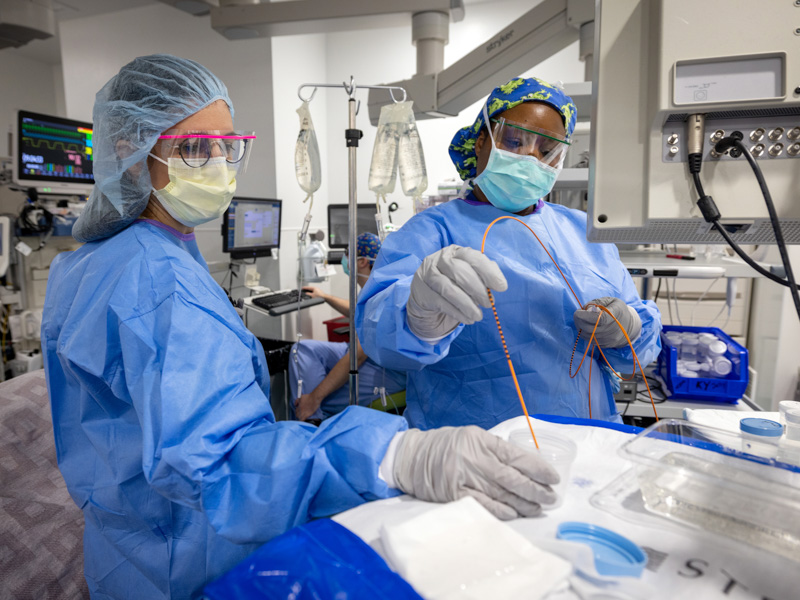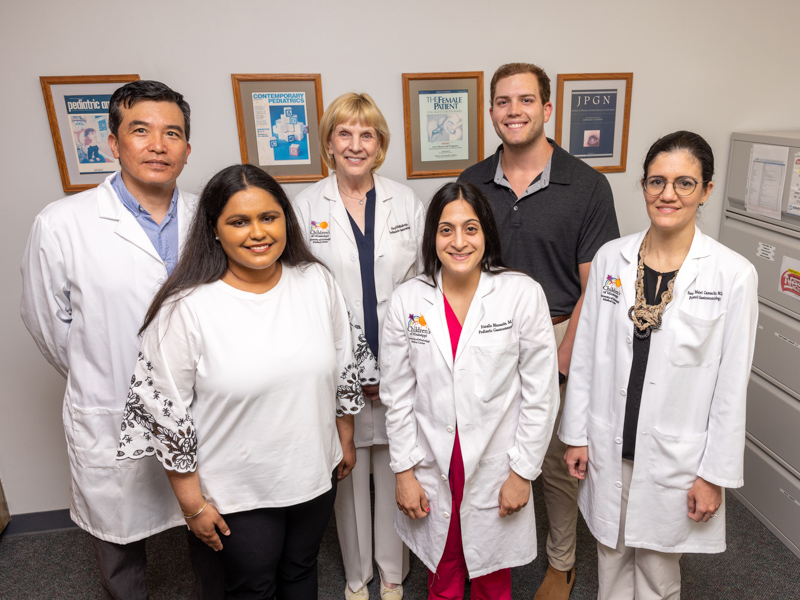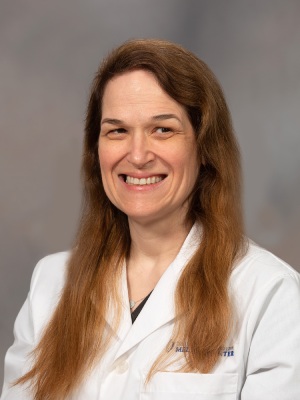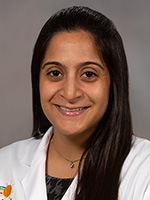UMMC researchers help map gut health in children

In a first-of-its-kind study, researchers at four medical centers are studying how genetics and environment affect pediatric gut development and overall health.
Funded by a $3 million grant from the Chan Zuckerberg Initiative, the Mapping the Gut across Ancestry, Geography and Environment study has partnered researchers from the University of Mississippi Medical Center with peers at University of Virginia School of Medicine, Boston Children’s Hospital and Pakistan’s Aga Khan University on the three-year project, which began in October.
By studying the healthy gut of children ages zero to 5 from diverse segments of the population, gastroenterology experts are collecting invaluable data that will also allow scientists to create interventions to fight diseases of the intestinal tract, enabling children to live healthier lives.
UMMC was chosen as a site because of its rural population and underrepresentation in studies, said Dr. Phyllis Bishop, chief of pediatric gastroenterology and site principal investigator.

Researchers are seeking relatively healthy children already undergoing a scheduled endoscopy. With the consent of parents, they take biopsies of the esophagus, stomach and the upper part of the small intestine that includes the microbiome – the bacteria that lives there.
If parents allow it, researchers also collect other samples -- including blood, nails and hair -- that contain environmental clues. They also complete questionnaires describing where they live, what they eat, medical history, ethnicity, and other social and environmental determinants of health.
UMMC performs about 35 pediatric upper endoscopies per month. Still, researchers have already enrolled 30 participants and hope to enroll another 50 to 70 by the end of the study.
“There is currently no data on the single cell physiology of the pediatric intestines, hence the study,” said Bishop. “In general, as a functioning organ, we see more allergies and more immune diseases affecting children’s GI tract than in previous years.”
Dr. Sarah Glover, co-investigator, believes many of the GI issues doctors see in pediatric patients can be traced back to the pandemic.

“We’re seeing a lot of post-COVID syndrome impacting the GI tract,” said Glover, a part-time professor of gastroenterology. “And we will be able to figure out who’s had what with some of this information.
“We’ve also seen almost a three-fold increase in pediatric inflammatory bowel disease – like Crohn’s and ulcerative colitis in kids. Dr. Bishop was the one who pointed that out. And that’s been confirmed by the literature. Kids presenting with sore bellies, motility problem and gut inflammation has increased in what I call the COVID tail, meaning they had COVID and may not have known it. We don’t really know how these viruses impact kids, and that’s an environmental thing.”
Dr. Natalie Bhesania, assistant professor of pediatric gastroenterology at UMMC and co-investigator, said the study is fascinating because gut health plays a role in all aspects of our lives, and there is still much to learn.

“A major feature of our site is the considerable racial, socio-economic and culture diversity of the populations that we serve,” said Bhesania. “This includes a large African American population, and a significant Hispanic and Choctaw Native American population. We have clinics and programs that extend throughout Mississippi, which is another reason it is important that UMMC is involved.
“We know that several factors influence gut health, but it will be interesting to see the variability between different sites within and outside of the United States.”
Added Glover: “I think the assumption is that people [in the South] eat bad. I don’t think that’s necessarily true. It’s given us an opportunity to look at unique populations, unique environments and think about things related to that.”
Glover’s hope is that the study will help researchers answer two questions. First, are there unique genetic features that affect GI pathology or lack of pathology in people of various genetic backgrounds?
And secondly, “What are some of the key environmental determinants – what’s in your water supply, lead paint, your diet? Are there other functions of where you live? And who knows: We may find out some unique things that we never knew existed.”


